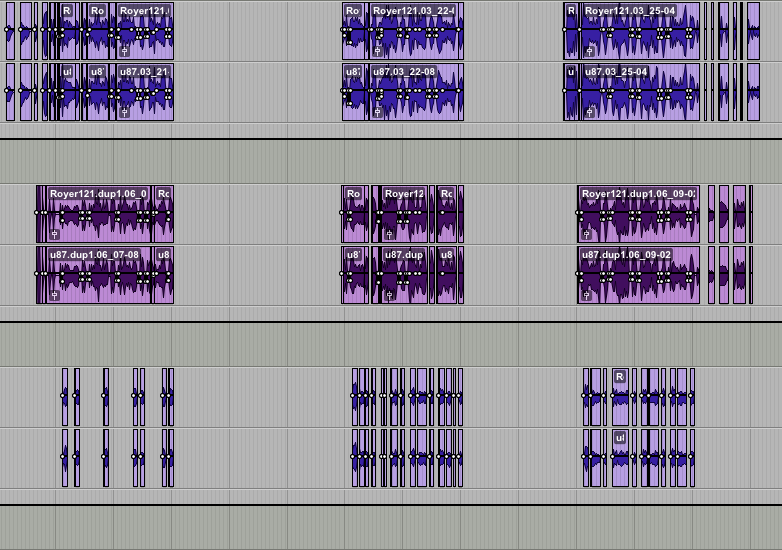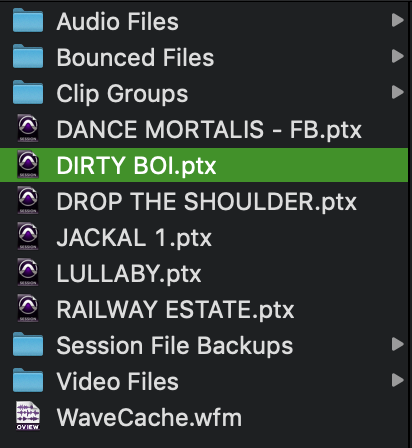Who owns your recording? the studio, or the artist?
- Andy Leeder

- Jul 25, 2018
- 3 min read
Updated: Mar 5, 2020
As a recording and mixing engineer who is regularly involved in recording sound and music, I've been interested in knowing more about who really owns the copyright on the recording itself.
I wonder things like 'What happens if the artist suddenly wants their tracks removed from the internet?' and 'How much of this recording do I really own? - both if I'm paid to record it, and if I've commissioned a musician for one of my own projects!'
So I've done some investigating for myself, and hopefully this blog can help clear some stuff up for you too!
As I work in Australia at the moment, I've been snooping around the Australian Copyright Council's (ACC) website to understand this crazy copyright stuff. Copyright laws are different for every country, I'm gonna focus on aussie laws here - until I find myself working in another country =P!

Copyright Basics:
A few key things to know about copyright before we get any deeper:
1. Copyright is free and automatically applies to your sound recording upon it's creation.
2. Copyright is different for each part of a track, lyrics, music and the sound recording itself can all come under different copyright laws, and ownerships.
2. Creators of a song also have moral rights, which are different from copyright and pertain more to respectful use and correct creditation of the work. If you're after that kinda stuff, check out this document.

Sound Recording Copyright:
How much do you own to your recording as a studio engineer, or as a musician?
A change in the copyright act in 2005 has given performers more rights to to any sound recording of their live performances, however for any sound recording that took place before 2005, the musician has very limited rights, with the majority of the copyright ownership going to the recording engineer.
Recordings after 2005, are co-owned by the recording engineer (the holder of the original recording master) and the artist unless another agreement has been reached. This means that consent is required from both parties in order to use the material, to present the track to the public (upload it to the internet for public consumption), and to commercially sell or use the audio. Consent does not legally have to be in writing, but personally I'd recommend making a list of the things that you agree to do with the work!
Here's a few exemptions to this:
1. If a recording takes place during the course of the musicians employment, the studio will own the entire copyright.
2. If a record company engages a studio to produce a track, the copyright will likely be owned by the record company as part of an agreement signed by the studio. The musician will not have any copyright ownership to the recording
3. Ofcourse, any written contract takes precedence before the copyright act, and may dictate ownership.
So basically at the end of the day, it's a great idea to keep good relations with your artists and recording engineers, as you both have a say in what happens with the works. Keep up the communication about how you agree to use the performance, talk to each other if you want to use it for something different in the future!
But if shit's flying, and you've got a dispute on your hands, hopefully the above guidelines will help you see how much you own. Unfortunately as copyright is very situational and subjective, the ACC does not go into much more detail and recommends you talk to a lawyer if you still have issues. I hope you never need to go there!
You'll find a bit more info on the ACC's website, so again, check that out if you're after something more specific!
Good luck!
Bibliography:
Copyright.org.au. (2016). Australian Copyright Council - Home. [online] Available at: https://www.copyright.org.au/acc_prod/ACC/Home/ACC/Home.aspx [Accessed 24 Jul. 2018].
Copyright.org.au. (2018). Performers' Rights. [online] Available at: https://www.copyright.org.au/ACC_Prod/ACC/Information_Sheets/Performers__Rights.aspx [Accessed 25 Jul. 2018].
Copyright.org.au. (2016). Music & Copyright. [online] Available at: https://www.copyright.org.au/ACC_Prod/ACC/Information_Sheets/Music___Copyright.aspx [Accessed 25 Jul. 2018].





Comments